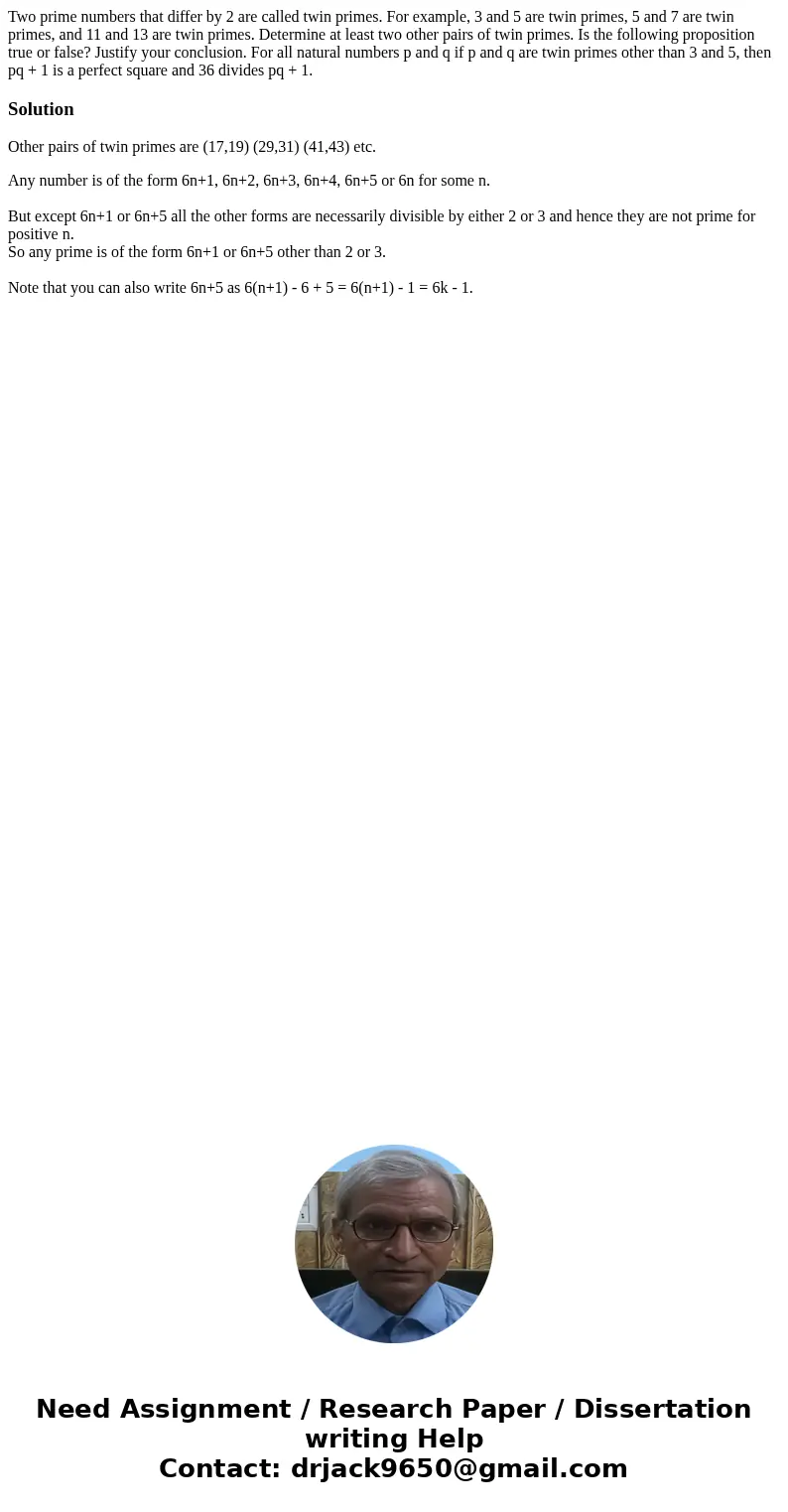Two prime numbers that differ by 2 are called twin primes Fo
Two prime numbers that differ by 2 are called twin primes. For example, 3 and 5 are twin primes, 5 and 7 are twin primes, and 11 and 13 are twin primes. Determine at least two other pairs of twin primes. Is the following proposition true or false? Justify your conclusion. For all natural numbers p and q if p and q are twin primes other than 3 and 5, then pq + 1 is a perfect square and 36 divides pq + 1.
Solution
Other pairs of twin primes are (17,19) (29,31) (41,43) etc.
Any number is of the form 6n+1, 6n+2, 6n+3, 6n+4, 6n+5 or 6n for some n.
But except 6n+1 or 6n+5 all the other forms are necessarily divisible by either 2 or 3 and hence they are not prime for positive n.
So any prime is of the form 6n+1 or 6n+5 other than 2 or 3.
Note that you can also write 6n+5 as 6(n+1) - 6 + 5 = 6(n+1) - 1 = 6k - 1.

 Homework Sourse
Homework Sourse